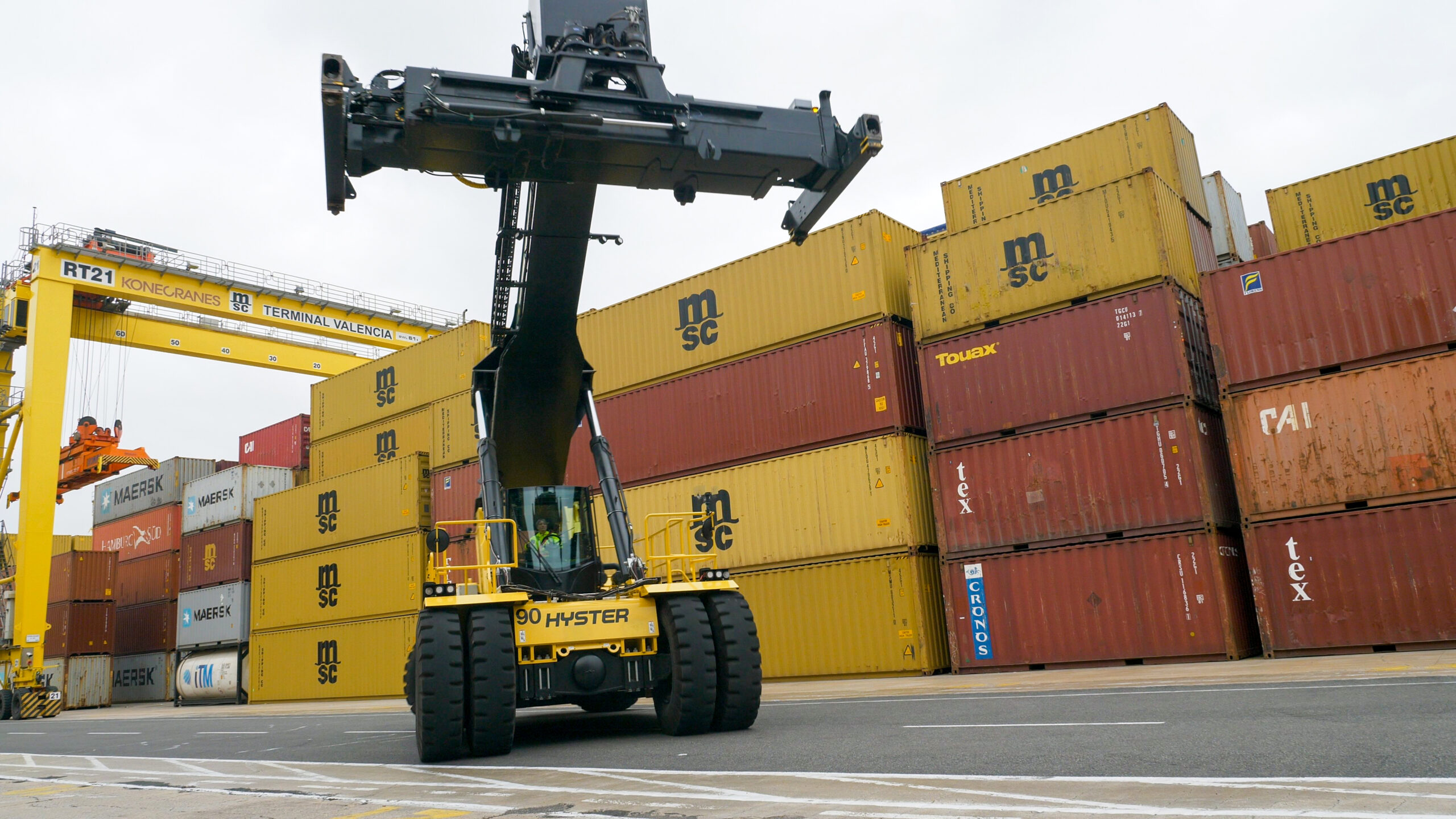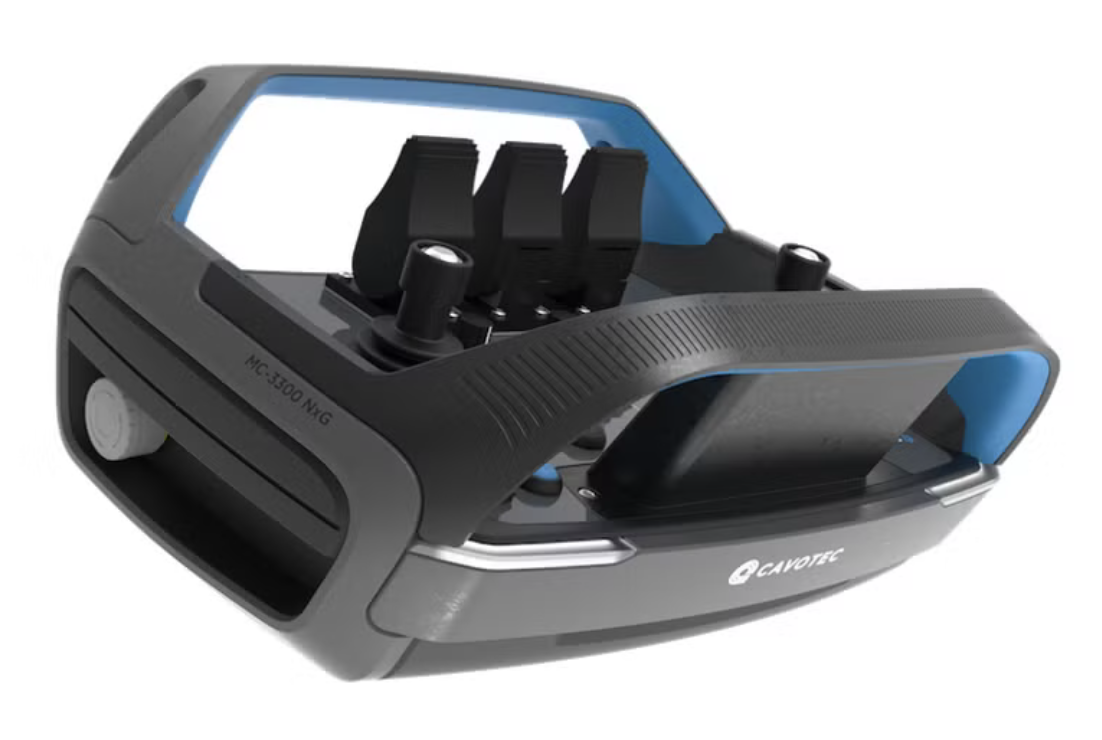Straightpoint Load Cell in Tree Felling Application
A Straightpoint load cell was used during the felling of nine hulking loblolly pine trees at a residential property in Chesapeake, Virginia, recently—one of which had been struck by lightning.
The wireless 25,000-lb. capacity Radiolink plus was utilised by arborist Adaptable Aerial Solutions LLC, beneath the hook of its Palfinger knuckle-boom crane, principally to avoid exceeding the safe working load limit of the company’s ropes and rigging hardware and compromising the structure of the tree in relation to dynamic forces and critical angles.
Four Adaptable (or Craneva, as it is known after the website name) arborists worked at heights of up to 90 ft. to bring down the trees in a piecemeal fashion; branches were removed first then the trunks. The team employed spliced eye balancing slings and endless loop slings. The balancers were tied with a non-binding hitch and the roundslings were set in a choker configuration using shackles and hooks for attachment at the choking point to prevent fabric on fabric friction.
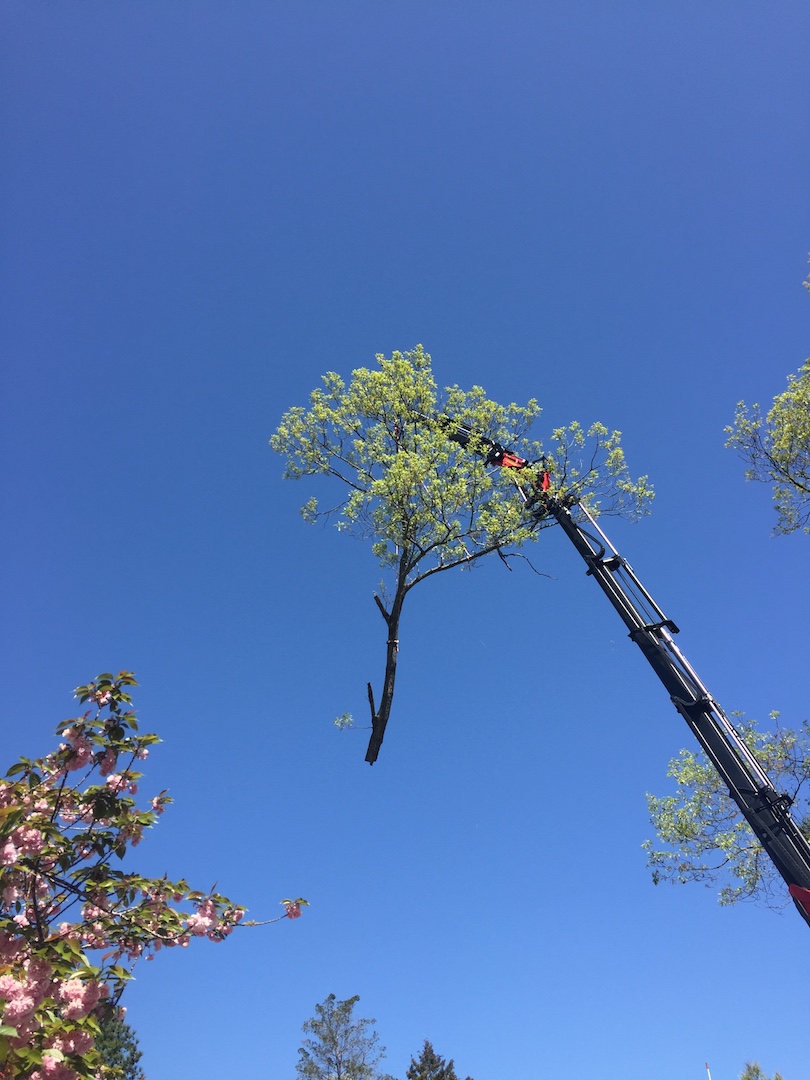
Four arborists worked at heights of up to 90 ft.
Wood weights were calculated in advance using a green weight log chart that provides a general guideline by species and size. On-site, the load cell recorded the smallest pick at 1,625 lbs. and the largest at 6,500 lbs.
Steve Connally, of Adaptable Aerial Solutions, said: “The crane doesn’t have an LMI [load moment indicator] like a cable crane. The controller shows the percentage of load on a LED light cluster. Since the wood weight varies considerably with environmental factors, time of year, and the number of branch unions, it’s necessary to know the weights of the picks in relation to the load chart and strength of rigging components. Each lift weight is evaluated in relation to the previous lift and the following. It’s a continuous harmony between the crane operator and the climber. This ensures we stay working within safe parameters.”

The team had to work around power lines, pools, fences, and other structures.
He added: “I am very impressed with the load cell. It is perfect for my application in weight, design, and ease of use. The data from the [load] cell allows me to pretension picks as the climber is cutting. As with any industrial lift evolution, weights, angles, and distances are essential information. Services I sub-contract for have been equally impressed with the Radiolink plus.”
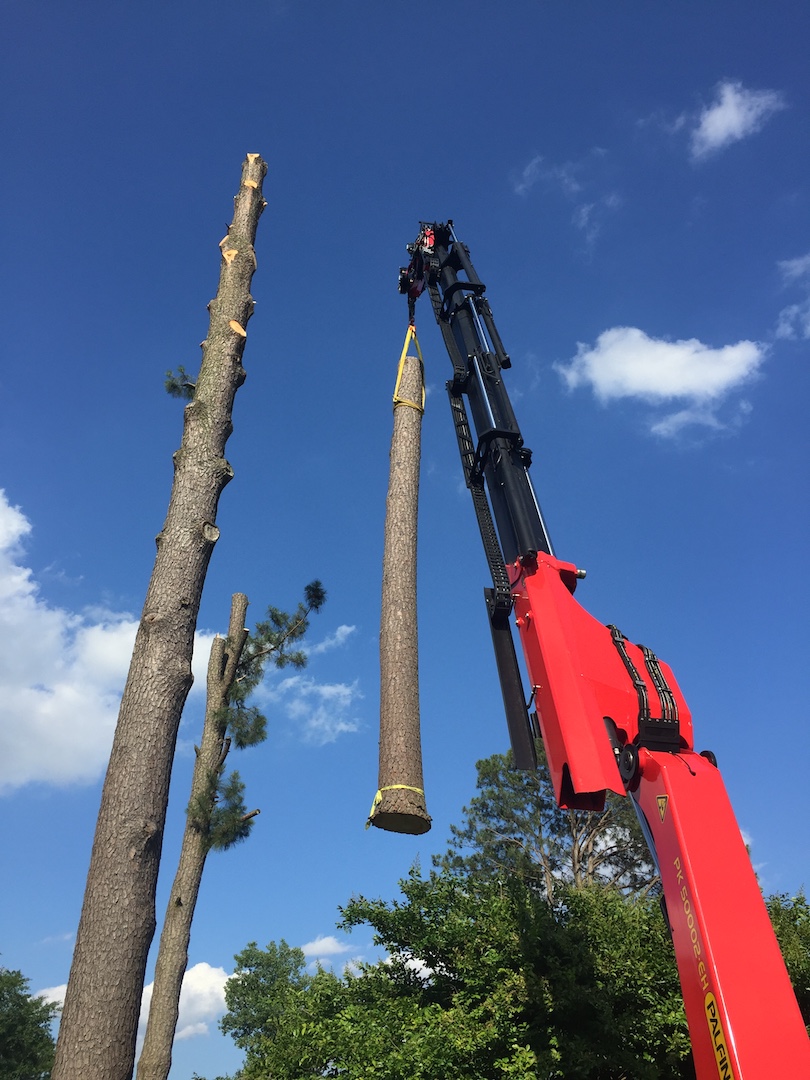
The Radiolink plus recorded the smallest pick at 1,625 lbs. and the largest at 6,500 lbs.
Crane expertise
The 50 ton meter, remote-controlled, articulating crane offers anywhere from 1,440 lbs. to 22,700 lbs. on capacity, depending where it is on its load chart. Connally is a National Commission for the Certification of Crane Operators (NCCCO) certified crane operator and has been using cranes in arboreal applications for 20 years.
Additionally, he and the team are fully trained in arborist rigging and technical rescue rigging operations. Connally is also an instructor at the Crane Safety Climber School, a class for arborists working with cranes for tree work. He explained that educational content includes hands-on training where a climber is aloft and performing rigging with an instructor alongside them in the tree.
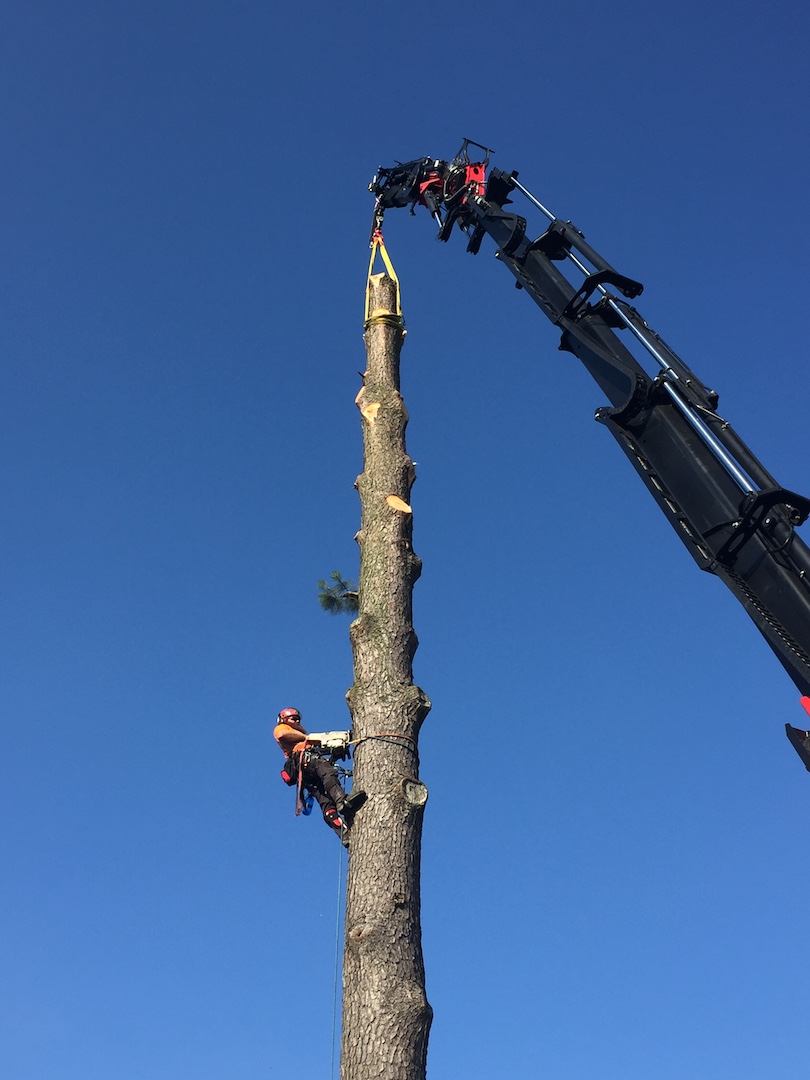
The crane offers from 1,440 lbs. to 22,700 lbs. capacity.
Connally explained that tree felling is more complicated than many realize; it simply isn’t a case of heading to the foot of one with a chainsaw or an axe. He said: “Trunks are taken, when possible, at lengths to fit specifications of the saw mills or pulp producers. It’s typically depending on the potential hazards on the ground, ease of processing, quickest method, and the available workspace—not to mention customers who want to maintain a perfect lawn. These trees were all on the property line; we had to ensure that power lines, pools, fences, structures, and understory was unharmed.”
Interestingly, Connally is also a 22-year veteran firefighter with the city of Norfolk Virginia and has been a paramedic for 27 years. For 10 years he was a member then a supervisor of the hazardous materials and technical rescue teams.
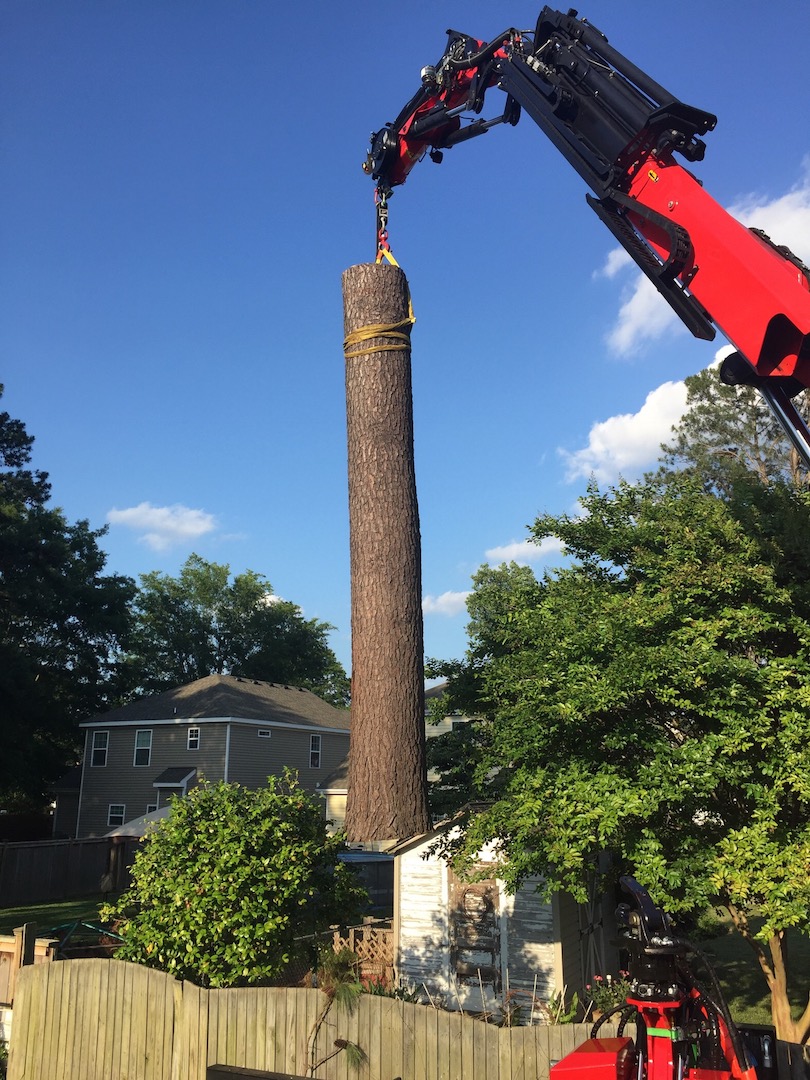
Trunks were taken at lengths to fit saw mill specifications.



